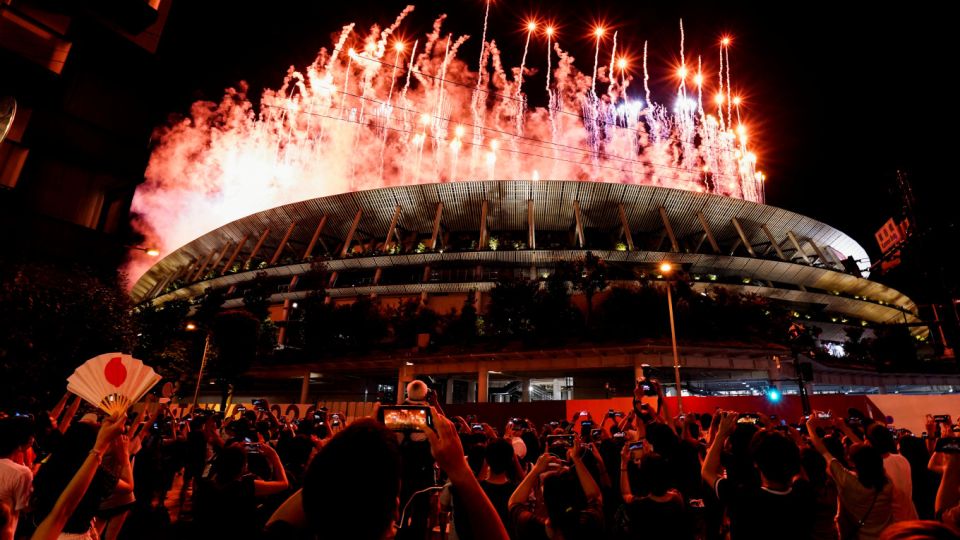December 5, 2022
JAKARTA – On the sidelines of the Group of 20 Summit in Bali, President Joko “Jokowi” Widodo announced Indonesia’s formal bid to host the 2036 Summer Olympics in Nusantara, the unbuilt Indonesian new capital.
Hosting the Olympics is a giant and costly project without guaranteeing financial profits. Still, the Olympics could be used as a platform to display the host country’s feats in sports and achievements in development.
If selected, Indonesia would be the fourth Olympic host country in Asia after Japan (1964 and 2020), South Korea (1988) and China (2008). These countries used the Olympics not only as a platform to prove their advanced feats in sports, but also to display accomplishments in economic development.
At the 1964 Tokyo Olympics, Japan proved its revival from post-World War II devastation and displayed the success of a rapid recovery and economic miracle as a leading industrial economy. Then the 2020 Tokyo Olympics originally was a mission to show that “Japan is back!” with restoration from the catastrophic earthquake and tsunami plus the Fukushima nuclear reactor accident in 2011. The COVID-19 pandemic postponed the event to 2021 and focused on the value of holding the Olympics despite the virus and the urgency of having it for the athletes.
The 1988 Seoul Olympics became a stage for displaying South Korea’s image transformation from a poor country under war threat to economic miracle. The Olympics was held when South Korea surpassed the upper-middle income country threshold and entered democratic system after the presidential election in December 1987.
Thanks to the five-year economic and social development plans, South Korea reached high-income country status in 1995 and now it is one of global economic, political and cultural powers.
The 2008 Beijing Olympics testified to the outcomes of China’s reforms. Since 1978, China has implemented five-year development plans with an open-door policy for foreign capital and technology to improve the people’s welfare that had deteriorated during the Cultural Revolution (1966-1976). Hosting the US$40 billion Olympics in 2008, when the financial crisis smacked down “capitalist market economies,” was an affirmation that the reforms were on the right track to develop China as a “socialist market economy.”
For Indonesia, hosting the 2036 Olympic could be aligned with the country’s big ambitions in sports and economic development.
In sports, Indonesia’s main target now is upgrading performance in the Olympics, while the Southeast Asian Games and Asian Games are intermediate targets. To pave the way, the Grand Design of National Sport has been arranged under Presidential Regulation No. 86/2021 to be implemented in five stages over 2021-2045. So far, Indonesia records mediocre feats in Olympics with a total of 37 medals; 21 in badminton, 15 in weightlifting and one in archery. All eight gold medals were contributed by badminton athletes.
In economic development, according to the Golden Indonesia 2045 vision, Indonesia aims to become a high-income country and the fifth-largest economy in 2045. Initially, the target was set to be achieved in 2036-2038. Due to the COVID-19 pandemic, it has been extended to 2043 with gross domestic product (GDP) per capita of US$15,287.
Indonesia’s economy is targeted to grow at least 5.7 percent annually. Meanwhile, during 2000-2021 the growth fluctuated averaging only at 4.85 percent and GDP per capita rose from $780 to $4,292.
Hosting the 2036 Olympics in Nusantara when Indonesia would be on the right track to become a high performer in sports and high-income country could be an inspiring scenario. To provide a reality check, some milestones must be set to achieve during the bidding process.
Normally, the International Olympic Committee decides the host of the Olympics seven to 11 years in advance. As reference, the 2032 Olympic Games was awarded to Brisbane, Australia in July 2021. Then, the 2036 Olympics host will be decided sometime between 2025 and 2029.
In sports, the milestone is Indonesia’s better performance at the 2023 Asian Games in Hangzhou, China and the 2024 Olympics in Paris. Indonesia must grab more medals in diversified branches of sports with strong comparative and competitive advantages of talents like archery, sports climbing and martial arts.
At the same time, the progress of developing Nusantara should be significant enough not to turn into a stalled project. The cost to build Olympic sports facilities and infrastructure must be incorporated into the overall costs of building the new capital.
In economic development, the milestone would be the level of economic growth in the next few years amid the risks of global stagflation and geopolitical uncertainties. The capacity to reach growths of, say, around 5 percent could serve as evidence of Indonesia’s economic resilience against shocks and its potential to reach higher and sustainable growths.
Another milestone is the adoption of the 2025-2045 National Long-Term Development Plan (RPJPN) as the continuation of Law No. 17/2007 on RPJPN 2005-2025. The Golden Indonesia 2045 vision needs to be integrated as a legitimate long-term vision of development.
The RPJPN is a guidance for five-year National Medium-Term Development Plans (RPJMN), which are the elaborations of electoral vision and mission of the elected president and vice president. While each elected president would have different ideas of how the country should be governed, maintaining the consistency between the RPJMN and RPJPN is necessary. Each president must align electoral aspirations with rational and consistent development plans as a condition to achieve common goals of the nation.
Over 2025-2045, Indonesia will be at the critical juncture of transformation from a developing low-income country into a developed high-income country. Each democratic regime governing the country is responsible to pave the way for successful transformation. Previously, the New Order authoritarian regime had failed to do it when the second phase of the 25-year development plan (1995-2015) for the economy “take-off” was grounded in the 1997-1998 political economy crisis.
Winning its bid to host the 2036 Olympics or not, Indonesia must prove its accomplishment of being a “democratic developed, equitable and prosperous country.”


